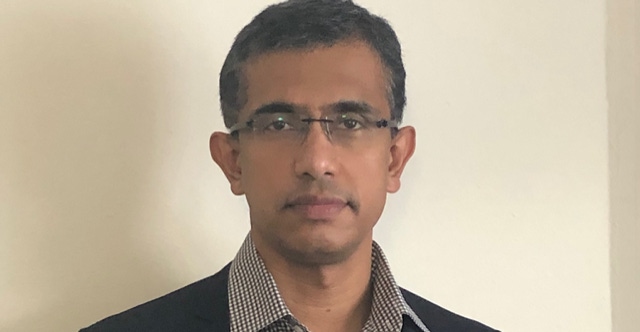How GE Healthcare's Edison Reduces Data Overload
GE Healthcare's Vignesh Shetty joins us for an episode of Let's Talk Medtech to discuss how the Edison Digital Health Platform is making a difference.
August 8, 2022

One of the current trends in the medtech industry involves companies expanding digital solutions. While digital innovation can be slow to progress in regulated industries like healthcare, GE Healthcare is changing the game with Edison Digital Health Platform, a vendor-agnostic hosting and data aggregation platform with an integrated artificial intelligence (AI) engine.
Thanks to digital tools like advanced analytics and AI, healthcare providers will be able to use the platform to deploy applications across the care continuum from screening and diagnosis to disease monitoring and operations.
As hospitals struggle with being understaffed and clinicians face burnout, the technology design will help solve the fundamental challenges that impact patient care - integrating AI into the workflow and helping doctors turn data into insights so they can spend more time with patients and less time in the electronic medical record (EMR).
In short, Edison Digital Health Platform is being designed to allow healthcare providers to focus on patient-centric care, while also helping alleviate excessive documentation, enhance data interoperability, and streamline data overload.
On the heels of GE Healthcare receiving three MDEA awards, Vignesh Shetty, Senior VP & General Manager of Edison AI, Platform at GE Healthcare joins us for an episode of Let's Talk Medtech to discuss how the platform is making a difference.
"What I do is I lead a product and an engineering team that really focuses on building the Edison Digital Health platform, which is really a set of healthcare specific services that enables the outcomes," Shetty told MD+DI. "Now, those could be clinical and operational AI-based. And by AI, I mean both machine learning and deep learning based, retrospective, predictive, and prescriptive applications. These applications can either run on a CT, MRI - an X-ray, cloud or ultrasound, or a bed monitor machine ... or on a cloud and a data center for a variety of these clinical outcomes."
About the Author(s)
You May Also Like



.png?width=300&auto=webp&quality=80&disable=upscale)
